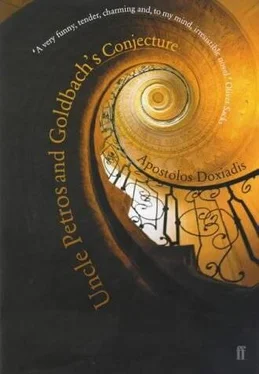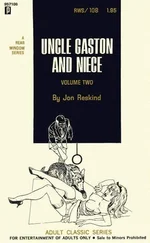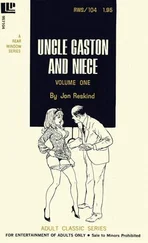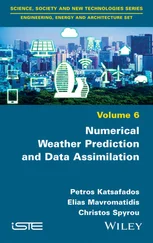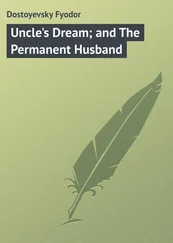'Get paper and pencil then, and I’ll tell you about it!'
I held back a triumphant cry. It was precisely what I'd hoped for when I had convinced him to accept the medal: that the honour might reawaken his mathematical vanity and rekindle his interest in his art, enough of it anyway to lure him into a discussion of Goldbach's Conjecture and beyond… to his real reason for abandoning it. Explaining to me the Papachristos Method was an excellent introduction.
I rushed to fetch paper and pencil before he changed his mind.
'You'll have to be a little patient,' he began. 'A lot of water has gone under the bridge since then. Let's see now,’ he murmured and began to scribble. 'Let us assume we have a partial differential equation in the Clairaut form… there! We now take…'
I followed his scribbles and explanations for almost an hour. Although I couldn't completely follow the argument, I showed exaggerated appreciation at every step.
'It's absolutely brilliant, Uncle!' I cried when he'd finished.
'Nonsense.' He brushed my praise aside, but I could see this modesty was not totally sincere. 'Sheer calculation of the grocery-bill variety, not real mathematics!'
The moment I was waiting for had arrived. 'Then talk to me about real mathematics, Uncle Petros. Talk to me about your work on Goldbach's Conjecture!'
He shot me a sideways glance, cunning, inquisitive and at the same time tentative. I held my breath.
'And what, if I may ask, is the purpose of your interest, Mr Almost-Mathematician?'
I had planned my answer to this beforehand, so as to put him in an emotional impasse.
'You owe it to me, Uncle! If for nothing eise, to compensate me for that summer of anguish in my sixteenth year, when I struggled for three months to prove it myself, floundering in my abysmal ignorance!'
He appeared to be considering this for a while, as if to make a point of not giving in all too easily. When he smiled I knew I had won.
'What exactly do you want to know about my work on Goldbach's Conjecture?'
I left Ekali after midnight with a copy of An Introduction to Number Theory by Hardy and Wright. (I had to prepare myself by learning 'some fundamentals’ he'd said.) I should point out to the non-specialist that mathematical books cannot normally be enjoyed like novels, in bed, in the bathtub, sprawled in an easy chair, or perched on the commode. To 'read' here means to understand, and for that you normally need a hard surface, paper, pencil and quality time. Since I had no intention of becoming a number theorist at the advanced age of thirty, I went through the Hardy-Wright book with only moderate attention ('moderate' in mathematics is 'considerable' by any other measure), without persisting on fully comprehending those details that resisted the initial assault. Even so, and taking into account that the study of the book was not my main occupation, it took me almost a month.
When I returned to Ekali, Uncle Petros, bless his soul, started to examine me as if I were a schoolchild.
'Have you read the whole book?'
'I have.'
'State Landau's Theorem.'
I did.
'Write out for me the proof of Euler 's Theorem of the \phi-function, the extension of Fermat's Little Theorem.'
I took paper and pencil and proceeded to do so, as best as I could.
'Now prove to me that the non-trivial zeros of the Riemann Zeta Function have real part equal to 1/2!'
I burst out laughing and he did too.
'Oh no, you don't!' I said. 'Not again, Uncle Petros! It's enough that you set me to prove Goldbach's Conjecture. Find somebody else to assign the Riemann Hypothesis!'
In the following two and a half months we had our ten 'Lessons on Goldbach's Conjecture', as he called them. What transpired in them is down on paper, with dates and times. Since I was now moving steadily towards the fulfilment of my main aim (his coming face to face with the reason for abandoning his research), I thought I'd also attain a secondary goal while at it: I kept meticulous notes so that, after his death, I could publish a short account of his Odyssey, perhaps an insignificant footnote to mathematical history, but still a worthy tribute to Uncle Petros – if not, alas, to his ultimate success, then certainly to his ingenuity and, more importantly, his dedication and single-minded persistence.
During the course of the lessons I witnessed an amazing metamorphosis. The mild, kindly, elderly gentleman I had known since my childhood, one easily mistaken for a retired civil servant, turned before my eyes into a man illuminated by a fierce intelligence and driven by an inner power of unfathomable depth. I'd caught small glimpses of this species of being before, during mathematical discussions with my old room-mate, Sammy Epstein, or even with Uncle Petros himself, when he sat before his chessboard. Listening to him unravel the mysteries of Number Theory, however, I experienced for the first and only time in my life the real thing. You didn't have to know mathematics to feel it. The sparkle in his eyes and an unspoken power emanating from his whole being were testimony enough. He was the absolute thorough-bred, pure unadulterated genius.
An unexpected fringe benefit was that the last remaining trace of ambivalence (apparently it had been there, dormant, all those years) regarding the wisdom of my decision to abandon mathematics was now dispelled. Watching my uncle do mathematics was enough to confirm it to the full. I was not made of the same mettle as he – this I realized now beyond the shadow of a doubt. Faced with the incamation of what I definitely was not, I accepted at last the truth of the dictum: Mathematicus nascitur non fit . The true mathematician is born, not made. I had not been born a mathematician and it was just as well that I had given up.
The exact content of the ten lessons is not within the scope of our story and I won't even attempt to refer to it. What matters here is that by the eighth we had covered the course of the initial period of Uncle Petros' research on Goldbach's Conjecture, culminating in his brilliant Partitions Theorem, now named after the Austrian who rediscovered it; also his other main result, attributed to Ramanujan, Hardy and Littlewood. In the ninth lesson he explained to me as much as I could understand of his rationale for changing the course of his attack from the analytic to the algebraic.
For the next he had asked me to bring along two kilos of lima beans. In fact, he had initially asked for navy beans, but then corrected himself, smiling sheepishly: 'Actually make it lima, so I can see them better. I'm not getting any younger, most favoured of nephews.'
As I drove to Ekali for the tenth (which, although I didn't know it yet, would be the last) lesson, I felt apprehensive: I knew from his narrative that he had given up precisely while working with the 'famous bean method'. Very soon, even in that imminent lesson, we would be reaching the cruciai point, his hearing of Gödel's Theorem and the end of his efforts to prove Goldbach's Conjecture. It would be then that I would have to launch my attack on his dearly held defences and expose his rationalization about unprovability for what it was: a mere excuse.
When I got to Ekaii he led me without a word to his socalled Irving room, which I found transformed. He'd pushed back what furniture there was against the walls, including even the armchair and the small table with the chessboard, and piled even higher piles of books along the perimeter, to create a wide, empty area in the centre. Without so much as a word he took the bag from my hands and started to arrange the beans on the floor, in a number of rectangles. I watched silently.
When he had finished he said: 'During our previous lessons we went over my early approach to the Conjecture. In this I had done good, perhaps even excellent, mathematics – but mathematics, nevertheless, of a rather traditional variety. The theorems I had proved were difficult and important, but they followed and extended lines of thought started by others, before me. Today, however, I will present to you my most important and original work, a ground-breaking advance. With the discovery of my geometric method I finally entered virgin, unexplored territory.'
Читать дальше
